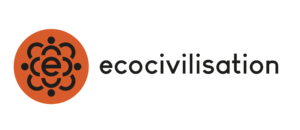(1) Towards the Ecocivilisation (Part IV): Health
Ecocivilisation Talks: Health in the Ecocivilisation
Wednesday 16th& 23rd September at 15.00
In our first session we will explore the concept of the Ecocivilisation with a focus on health as a field with a significant potential to contribute to sustainability. We will debate new threats and opportunities that got evoked in the current epidemic and how can we as a society adapt to the situation. Can the Covid-19 epidemic possibly necessitate a paradigm shift in public and global health policies?
These and more questions will be debated by our speakers:
Margaret Hannah, Fellow of Faculty of Public Health (UK) and author of a book titled Humanising Healthcare: Patterns of Hope for a System Under Strain. With over 30 years of experience in the NHS, specialising in Public Health, Margaret has a passion for innovation and development for population health and wellbeing. Currently working with International Futures Forum, Margaret supports others to undertake transformative innovations in health and wellbeing.
Bret Hart, Upstream health physician at Puntukurnu Aboriginal Medical Service (PAMS), will claim Western medicine is un-sustainable with the COVID-19 challenge highlighting overdue opportunities for change. He will take us on a journey to try to find answers for shaping a healthier future.
Barbara Hrovatin, a medical doctor with experiences in general practice, pharmaceutical development and education. In recent years, she is dedicated to research in medical anthropology, exploring understandings of healing in biomedicine. In our time of Anthropocene and foregrounded technological solutions she wishes to contribute to creative transdisciplinary collaboration opening reflections on the goals of medicine and building whole person care as an integral part of sustainable, thriving society.
The debate will take some 90 minutes including the initial presentation by Violeta Bulc, former EU Commissioner for Transport, entrepreneur, manager, advisor, lecturer and author of the concept, followed by comment and reflections by your side and other participants. The last 15 minutes will be dedicated to a Q&A session.
(2) Towards the Ecocivilisation (Part V): Communities
Ecocivilisation Talks: Communities in the Ecocivilisation
Part 1: Wednesday 21st October 15:00
In the first part of the Communities session we will explore the concept of the Ecocivilisation with a focus on communities and societies as one of the most important factors of evolving our society to the next level. We will talk about what could be the right financial, legal and socio-cultural framework for the Ecocivilisation. How could the communities bring people together in the future and how could technology influence our relationships and the feeling of belonging? How can shifting values best be reflected in how money is distributed in society? These and many more questions will be discussed by our honourable speakers:
Ladeja Godina Košir is an internationally recognised Circular Economy Leader – the finalist of The Circular Awards / WEF 2018 and featured as one of #EUwomen4future. An entrepreneur with a background in the creative industries, today the driving force of the circular economy in Slovenia and Central-Eastern Europe – the Chair of CG of the European Circular Economy Stakeholder Platform (ECESP) in Brussels. Ladeja is regularly publishing on CE and is a co-author of the “Roadmap for CE in Slovenia” as well as the contributor to the national CE roadmaps of Serbia, Montenegro and Chille. She is an inspirational speaker and empowering moderator at international CE events.
Einar Kleppe Holthe, a true ecocivilisation businessman from Norway. As a managing director he developed Stockfleths Coffee & Tea Specialtystores in an innovative and economically sustainable store chain, based on the ethical principle of direct trading. He is the founder of Norwegian Icons AS, an export company focused on design and creating sustainable market bridges from small scale Norwegian design production to the high-end global market. Furthermore, he has founded Natural State, a natural approach to urban value creation. Since 2011, Holthe has also been teaching about the concept of development and branding at the Emergence School of Leadership in Oslo.
Part 2: 4th November at 15.00
In the second session we will explore the relations between the planetary consciousness as an identifier of a global community and identities of communities aggregated around cultural, linguistic, national, or religious denominators.
One of the key questions is, whether the desired Ecocivilisation is the one, in which many identities can co-exist and in which way this could become a reality. Can we actually rise to the level of a planetary community without fully recognising other identities? In other words, is a world of shared planetary responsibilities (e. g. following the Paris Climate Agreement) actually realistic without the engagement at a multi-community level? – If so, this requires the recognition of multiple identities, respect and co-habitation. So, from the European – and Western – perspective, our challenge is to upgrade the nationalist framework, a concept deriving from the 19th century romanticism, which had its global dominance in the 20th century with some disastrous consequences.
Bojan Brezigar, journalist and political scientist who has been dealing with minority issues in Europe for more than four decades. His work focuses on the Slovene minority in Italy. Linguistic and cultural diversity is one of the foundations of Europe. In most European countries, this diversity is still suppressed to some extent, which is partly due to centralistic political systems. Bojan has been active in European minority organisations for many years. He has worked with the European Commission, the European Parliament, the Council of Europe and the OSCE High Commissioner on National Minorities.
Nataša Heror, director of the media agency Heror Media Pont, engaged in improving the work of the media in the languages of minorities. In 2012, a Regional Conference devoted to media in minority languages was established, which has grown to reach the European level in 2017. Since 2013, she has been successfully implementing an annual event promoting media in the languages of minorities, as well as languages and the culture of minority communities living in Vojvodina (Serbia) in cooperation with the Library of the City of Novi Sad. By education, Nataša is a professor of philosophy – in her work, she deals with the phenomena that make up the reality in which we live, with the desire to make our society a better place to live.
Vicent Partal, journalist and director of Vilaweb, the most important digital newspaper in Catalan. He has been a correspondent in countries in conflict personally experiencing crucial moments in history, from the fall of the Wall to the Balkan War or the revolt of students in Beijing. He is indisputably one of the pioneers of Internet media in the Catalan countries. Thus, in 1994 he created El Temps Online, the first digital information system in Spain. In 1995, he founded Vilaweb together with Assumpció Maresma. He has published several monographs on NATO and on nationalism in different countries, his most recent book being Nou Homenatge a Catalunya, a journalistic chronicle of the events that led to the proclamation of the Catalan Republic.
The debates will take some 90 minutes including the initial presentation by Violeta Bulc, former EU Commissioner for Transport, entrepreneur, manager, advisor, lecturer and author of the concept, followed by comments and reflections by your side and other participants. The last 15 minutes will be dedicated to a Q&A session.
(3) Towards the Ecocivilisation (Part VI): Individuum
Ecocivilisaiton Talks: The Individuum
Part 1: 18th November at 15.00pm CET
In the first part of the Ecocivlisation Talks on the Individuum, we will have a look at the following aspects: How can the individuum strive in the Ecocivilisation? Which abilities will be essential? Will new technologies change the way we learn? And what role do cultural values and social structures play?
Speakers:
Violeta Bulc, Curator of the Ecocivilisation, former EU Commissioner for Transport, will open the debate with the initial presentation of the Ecocivilisation as the author of a comprehensive interpretation of this concept.
Curtis Carlson, Ph.D., an internationally recognised innovator and thought leader on the practice of innovation. During his time as CEO of SRI International in Silicon Valley from 1998 to 2014, SRI became a global model for the creation of high-value innovations. He is a professor at WPI and Northeastern Universities, where he teaches value creation and innovation. His company, Practice of Innovation, works with companies, governments, and universities to improve innovative performance. He served on President Obama’s National Advisory Council on Innovation and Entrepreneurship.
Ramit Singh Chimni who started as a pro-bono activist working towards empowering farmers in the northern part of India. He has been guiding strategic and policy interventions in the development sector for over a decade. He also co-founded the Eight Goals One Foundation (8one), which has recently been recognised as an “Iconic Leader Creating A Better World For All” by the Women’s Economic Forum.
Sonja Klopčič, an engaged developer of collaborative leadership in conscious organisations as well a mentor and coach to executives. She is the author of The Energy Inside Leadership and The AEIOU of Leadership. Among many awards for innovation she recently received a gold award for the model AEIOU of Leadership.
Part 2: 2nd December at 15.00pm CET
Moleen Madziva is a leader with 12 years of functional R&D and Clinical Research experience in the medical devices industry, specialising in implantable electrophysiology devices as well as neurostimulation devices. Molly has devoted the last decade to sustainable development in her native community of Macheke, Zimbabwe, by collaborating with educators, students, community residents and development practitioners globally. In addition, she facilitates an important dialogue on adult development, diversity and belonging.
Urška Batellino is a psychoanalytic psychotherapist dedicated to working with individuals and groups with obsessive compulsive disorder and signs of burn out. She will help us understand how we grow as a person and how we can overcome internal struggles in order to evolve and surpass ourselves.
Dražen Šumiga is a psychotherapist who has his own private practice. In addition, he is a philosopher and lecturer at the Sigmund Freud University – Ljubljana, Slovenia. He is also a former researcher at The Erich Fromm Institute, Tuebingen (Germany). His primary focus of interest is scientific research on phenomenology, theoretical psychoanalysis and the relational psychotherapy.



